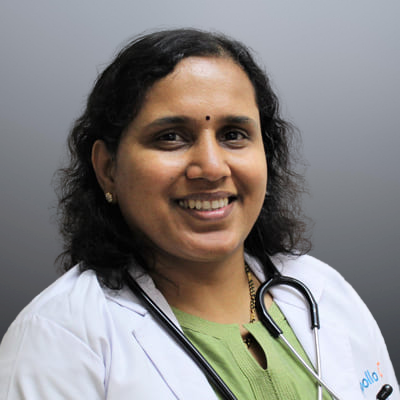Search Result: 2

Dr Nivedita Shetty
MBBS, MD (OBG, MRCOG)
Registration No
466205
Language
English, ಕನ್ನಡ

8 years experience overall

VV Mohlla , Mysore
MON, WED, FRI(04:00 PM-07:00 PM)

Dr Rashmi B N
MBBS,DGO,DNB (GYNAECOLOGY)
Registration No
813684
Language
English, हिंदी, ಕನ್ನಡ

12 years experience overall

VV Mohlla , Mysore
MON- SAT(06:30 PM-08:30 PM)
Frequently Asked Questions for Medical abortion in Mysore
The recovery time after a D&C procedure can vary from person to person. Most individuals can resume their normal activities within a day or two. Your doctor will provide specific instructions on rest and activity restrictions based on your individual circumstances.
After a D&C procedure, your menstrual cycle will likely return to normal within a few weeks. However, it is important to note that every person’s body is different, and it may take some time for your menstrual cycle to regulate.
A 6-week abortion can be managed with either a D&C or medical abortion using medications like misoprostol. The choice of procedure depends on factors such as individual preference, medical history, and the recommendation of your healthcare provider.
D&C is a generally safe procedure when performed by an experienced healthcare provider. However, as with any surgical procedure, there are potential risks, including damage to the uterus or infection. Your doctor will discuss the potential risks and benefits with you before the procedure.
D&C is usually performed under anaesthesia, so you should not experience pain during the procedure itself. However, some individuals may experience mild discomfort or cramping afterwards, which can be managed with pain medication prescribed by your doctor.
Dilation and curettage (D&C) is a surgical procedure that involves scraping the uterine lining to remove tissue after a miscarriage. Misoprostol is a medication used to induce uterine contractions for the expulsion of pregnancy tissue. The risks and benefits of each procedure can vary depending on individual circumstances, and it is important to discuss them with your doctor.
The process of a medical abortion typically takes several days. The first medication is taken at the doctor’s office, and the second medication is taken at home within 48 hours. Most individuals will experience bleeding and cramping for a few days until the pregnancy is expelled.
The eligibility criteria for medical abortion depend on factors such as gestational age, overall health, and any pre-existing medical condition. It is important to consult with a qualified healthcare provider who can assess your specific situation and determine if medical abortion is a suitable option for you.
It is advisable to seek medical abortion services from reputable hospitals or clinics that specialise in reproductive health. Research hospitals or clinics in your area that have experienced doctors on the panel with a good track record of providing safe and comprehensive reproductive healthcare.
After a medical abortion, it is important to follow your doctor’s instructions for post-procedure care. This may include taking pain medications, using pads instead of tampons, and avoiding sexual activity for a certain period of time. Your doctor will also schedule a follow-up appointment to ensure proper recovery.
Before a medical abortion, it is important to have a thorough medical evaluation. This may include an ultrasound to determine the gestational age of the pregnancy. Your doctor will provide specific instructions on how to take the medication and what to expect during the process.
The recovery time for medical abortion can vary from person to person. Most individuals can expect to recover within a week or two. It is normal to experience bleeding and cramping during this time.
The success rate of medical abortion is generally high, ranging from 95% to 98%. However, it may vary depending on factors such as gestational age and individual response to the medications.
To find the best doctors for medical abortion, you can start by asking for recommendations from your primary care doctor or gynaecologist. Additionally, you can research local hospitals or clinics that specialise in reproductive health to find experienced doctors in this field.
Medical abortion is a procedure that uses medication to end a pregnancy. It involves taking two different types of pills, commonly known as the abortion pill, within the first 10 weeks of pregnancy to induce a miscarriage.
Obstetricians and gynaecologists are typically the doctors who perform medical abortions. They have the necessary expertise and training to safely administer the medications and provide appropriate follow-up care.
Doctors who perform medical abortions should have specialised training in obstetrics and gynaecology. They should be knowledgeable about the medications used and have experience in managing the potential complications associated with medical abortion.
Related Procedures in Mysore
- Doctors for Hysterectomy in Mysore
- Doctors for Mastectomy in Mysore
- Doctors for C-section in Mysore
- Doctors for Medical abortion in Mysore
- Doctors for Myomectomy in Mysore
- Doctors for Adhesiolysis in Mysore
- Doctors for Hysteroscopic Polypectomy in Mysore
- Doctors for Diagnostic Laproscopy in Mysore
- Doctors for Fibroid Removal in Mysore
- Doctors for Laparoscopic Assisted Vaginal Hysterectomy in Mysore
- Doctors for Removing Uterine Polyps in Mysore
- Doctors for Total Laparoscopic Hysterectomy in Mysore
- Doctors for Diagnostic Hysteroscopy in Mysore
- Doctors for Ovarian Cyst Removal in Mysore
- Doctors for Hysteroscopic Myomectomy in Mysore
- Doctors for Tubal Ligation in Mysore
- Doctors for Breast Surgery in Mysore
Related Treatments in Mysore
- Doctors for Ectopic Pregnancy Treatment in Mysore
- Doctors for Endometriosis Treatment in Mysore
- Doctors for Hirsutism Treatment in Mysore
- Doctors for Lichen Planus Treatment in Mysore
- Doctors for Menopause Treatment in Mysore
- Doctors for Polycystic Ovary Syndrome Treatment in Mysore
- Doctors for Sexually Transmitted Diseases Treatment in Mysore
- Doctors for Urinary Incontinence Treatment in Mysore
- Doctors for Uterine Fibroids Treatment in Mysore
- Doctors for Uterine Prolapse Treatment in Mysore
- Doctors for Vaginitis Treatment in Mysore
Other Specialities in Mysore
- Best Urologist in Mysore
- Best Pulmonologist in Mysore
- Best General Physician in Mysore
- Best Endocrinologist in Mysore
- Best Cardiologist in Mysore
- Best Oncologist in Mysore
- Best Radiologist in Mysore
- Best Orthopedics in Mysore
- Best Hepatologist in Mysore
- Best Gynecologist in Mysore
- Best Dermatologist in Mysore
- Best Gastroenterologist in Mysore
- Best Psychologist in Mysore
- Best Ent Specialist in Mysore
- Best Nephrologist in Mysore
- Best Rheumatologist in Mysore
- Best Diabetologist in Mysore
- Best Psychiatrist in Mysore
- Best Neonatologist in Mysore
- Best Dentist in Mysore
- Best Dietitian in Mysore
- Best Haematologist in Mysore
- Best Pediatrics in Mysore
- Best General Surgeon in Mysore
Top Hospitals in India
- Hospitals in Ahmedabad
- Hospitals in Bangalore
- Hospitals in Bhubaneswar
- Hospitals in Bilaspur
- Hospitals in Chennai
- Hospitals in Delhi
- Hospitals in Guwahati
- Hospitals in Hyderabad
- Hospitals in Indore
- Hospitals in Kolkata
- Hospitals in Madurai
- Hospitals in Mumbai
- Hospitals in Mysore
- Hospitals in Nashik
- Hospitals in Noida
- Hospitals in Visakhapatnam
- Hospitals in Lucknow
- Hospitals in Bhopal
- Hospitals in Karur
- Hospitals in Kochi
- Hospitals in Nellore
- Hospitals in Trichy
- Hospitals in Kakinada
© Copyright 2024. Apollo Hospitals Group. All Rights Reserved.
 +91 8069991061
Book Appointment
+91 8069991061
Book Appointment






 Call Now
Call Now


